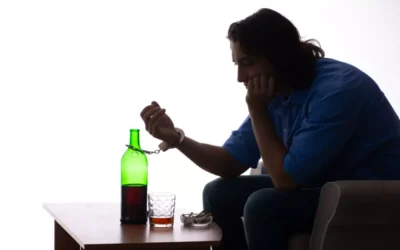Content
When they reach the point in their substance use when they get a DUI, lose their job, or go to jail, for example, it can be difficult to accept that the best thing they can do in the situation is nothing. When someone with alcohol dependency promises they will never drink again but a short time later are back to drinking as much as always, it is easy to take the broken promises and lies personally. It’s common for someone with AUD why are alcoholics in denial to try to blame their drinking on circumstances or others around them, including those who are closest to them. It’s common to hear them say, “The only reason I drink is because you…” People often come to terms with the reality of a situation on their own given time and support. For example, you might stay in denial to some degree about a health concern because you don’t want to face the possibility of being seriously ill.
The terms denial (or repression) can be defined as selective ignoring of information. Denial is a form of motivated belief or self-deception that detaches an individual from reality (Bortolotti, 2010). To maintain a positive view of themselves, people revise their beliefs in the face of new evidence of good news but ignore bad news. Psychological processes such as distraction, forgetfulness, and repression, may serve as a variation of denial. It should be noted that these psychological processes may or may not be conscious processes.
How well do you worry about your health?
Routinely alcohol consumption monitoring in primary care practices could help primary and secondary prevention of alcohol use disorders and increase treatment coverage. The data presented here must be viewed with several caveats in mind. First, we report detailed information gathered prospectively every five years from 453 families by the same principal investigators using the same interviews and questionnaires across two generations.
And denial doesn’t only come from people who struggle with drinking; their family and friends are sometimes in denial too. This enables the person to stay in denial, even as the consequences of their drinking become more severe and noticeable. Research shows that people with alcohol use disorder often downplay the severity of their drinking.2 Due to shame, it is common for someone with AUD to not be fully forthcoming in sharing the impact alcohol has had in their life. If you recognize denial in yourself, Scholl advises that you reach out for help. Talk to someone close to you or get an outside opinion from a therapist, a spiritual counselor, your doctor, or a hotline number, such as the National Domestic Violence Hotline if you’re experiencing intimate partner violence. For addiction problems, make that first call to a substance use disorder hotline or recovery center, or try attending just one meeting of a 12-step program (such as Alcoholics Anonymous).
Sometimes there are good reasons to stick to denial — or equally good reasons to let go of it.
It’s a family meeting—often facilitated by a professional who understands what it takes to motivate someone to enter treatment. To learn more about the process and https://ecosoberhouse.com/ possible next steps for your family. The wish not to stop drinking completely was particularly frequent among the treatment barriers reported in this study.

When they are high, their fears of inadequacy and unworthiness fade away. For example, alcohol and heroin are often sought for their numbness. Take our short alcohol quiz to learn where you fall on the drinking spectrum and if you might benefit from quitting or cutting back on alcohol. When you address your loved one’s drinking, use compassion and empathy. Avoid criticizing and shaming, and focus on highlighting your love and concern. Acknowledge the positives and listen to their response, even if you don’t agree.